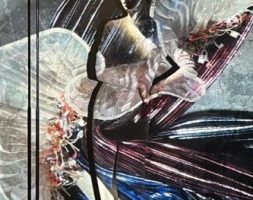The Center of Barcelona gentrifies through tourism business and changes the traditional cultural and social tissue. A “first wave” of forced restructuring of houses through real-estate developers as new owners pressed residents either to buy renovated space at overprized rates or leave the place altogether. Those who bought new apartments with mortgages running up to 30 years were soon after confronted with the so called “bubble burst”: 40% loss of the condominium’s value combined with increasing cases of unemployment because of the economic crisis caused numerous suicides. Only the banks were saved through the ESM European Stability Mechanism, widely seen and criticized as a financial “rescue parachute” for banks. Tourism serves a “next bubble”. Apartments in the city’s central area rise and are let as expensive accommodations for tourists (e.g. “airbnb”) Traditional commerce is replaced by tourist-aimed shops. La Boqueria, the central market hall, landmark spot in Spain is suffocated by tourist oriented changings. Tourists have a “special life/special interest” which is very different from real residential populations. The ancient Barceloneta has already changed into a mono-culture of tourism. There are doubts whether some of the new shops in such tourism- “gentrified” areas serve as money-laundries to criminal organizations.
Two Catalan composers, Raquel García-Tomás and Joan Magrané Figuera, will draw a musical picture from two controvers angles to the identical same story and topic. Especially with this global phenomenon, everything seems to be a question of personal position, to either profit from ongoing political and economic decisions of the free market or to be discriminated by it.
















